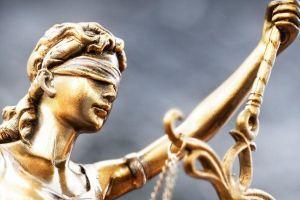Consider These Legal Questions Before Spending Millions on NFTs
Nelson M. Rosario is an attorney at Smolinski Rosario Law, a US-based law firm, specializing in contract and intellectual property law.
_______

There are lots of intellectual property (IP) issues that are raised by non-fungible tokens (NFTs). Let’s dive in to cover a few.
The main IP issues raised by NFTs have to do with copyright law. Copyright law has a mixed reputation in the world of software and cryptocurrency, but it is definitely a major concern in the art world.
What copyright issues come up because of NFTs? Ownership.
Who really owns the copyright in the work? The creator? The purchaser of the NFT? A downstream purchaser? The platform? Platforms? The smart contract?
Now you might say that copyright ownership is figured out and governed by the smart contract, but would it be recognized in all jurisdictions that the blockchain exists in? Have the requirements of the various copyright treaties been taken into consideration?
What about situations where there is more than one creator? What about situations where creators disagree after creation about how the work can and should be used?
What about “moral rights?” Is that on the radar of the NFT community? Do they know or care about these rights that are so important in Europe?
What happens when things break? Also, known as “what happens when people sue?” Do they sue platforms? Do they sue artists? Do they sue buyers? Are these questions even contemplated?
What about when a third-party copyright holder chimes in claiming their copyright is violated by a piece of NFT art? Is there a resolution process in place for platforms? Do they know or care?
Copyright is not the only issue for NFTs.
What about trademarks?
Trademarks are traditionally thought of as being concerned with consumer protection. So, if you have a NFT that incorporates a trademarked brand/slogan do you have infringement risks? If so, who should be liable?
Copycats. This is both a trademark risk and a copyright risk for NFTs. Big companies and small companies are rightly protective of their IP assets in these classes. A devil may care attitude to honoring such rights is risky.
It is easy to dismiss these concerns when a market is frothy, new, exciting and built on a YOLO mentality. It will be much harder to dismiss all this when the market is more mature and elbows are sharp.
____
Learn more:
– NFT Overtakes Litecoin, Bitcoin Cash, and XRP on Google
– Grimes and Paris Hilton Go Full NFT – But Some Warn of Trouble Ahead
– Defeated Donald Trump-themed NFT Sells for USD 6.6 Million
– Check These 4 Make-Your-Own-NFT Platforms
– NFTs Gaining Traction Around the World as Key Milestone Is Met
– Non-Fungible 2021: Prepare Your NFTs For DeFi, Staking, and Sharing
– ‘Traditional’ Art vs. Crypto Art: How to Value It



